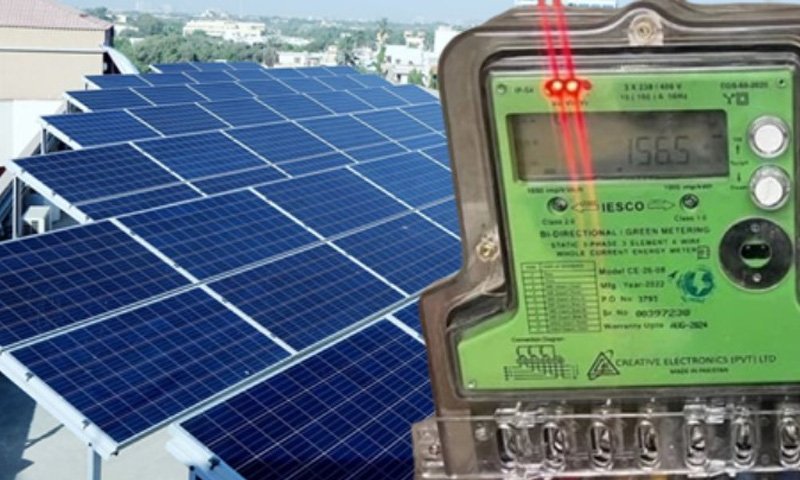The federal government is considering a significant reduction in the solar net metering rate, proposing a decrease to Rs. 7.5-11 per unit from the current rate of over Rs. 21 per unit. This move comes in response to the recent decline in solar panel prices and concerns raised by the International Monetary Fund (IMF) regarding the increased use of solar energy, which is diminishing reliance on grid electricity.
If implemented, the new policy would mean that rooftop solar consumers receive lower compensation for surplus electricity fed back into the grid. Additionally, these consumers would face a charge of Rs. 60 per unit for grid electricity during peak hours.
The proposed change could result in six units of solar-generated electricity being equivalent to just one unit of grid electricity, potentially discouraging further adoption of solar panels and addressing capacity payment challenges faced by power producers, according to a national daily report.
The government’s proposal is inspired by a recent solar bid by K-Electric, which was priced at 3.1 cents per unit. The new tariffs are set to be proposed to the National Electric Power Regulatory Authority (NEPRA).
The IMF has expressed concerns about the national grid effectively serving as an unpaid storage facility for solar users and has urged the government to implement measures to increase demand for grid electricity. In the past, gross metering was suggested as an alternative, which would compensate solar users at a fixed rate for energy exported to the grid while requiring them to pay retail tariffs for electricity consumed from the grid.










